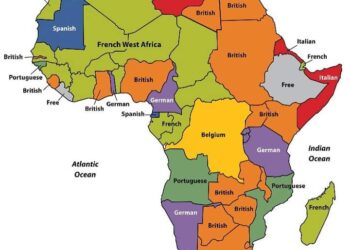Communication, in the words of Grunig and Hunt, is the biggest tool mankind has as a potential way of overcoming difficulties. But in most cases, we have it abandoned and embrace traveling the circumference of chaos before coming to access this powerful instrument.
A fitting example of the above is the current protracted industrial action embarked on by the Non-Academic Staff Union of the Nigerian universities (NASU) to press home their demand for ‘Earned Allowance’, an exercise that has lasted for over three months with the group staging a peaceful protest on March 8, 2018 in Abuja.
Mundane and inoffensive as the demand may appear, it has become a worrying development that strikes in our educational institutions have become not just incessant but a regular trademark to the extent that before the dust raised by the Academic Staff Union of Universities (ASUU) strike will go down, that of the NASU is up.
Also revealing is the fact that this current strike has since morphed from a conventional action to an emblematic one that sermonizes on two cardinal messages; first, that the Federal Government has become a self-declared enemy of education in Nigeria with neglect and underfunding as a formidable tool. NASU on its part has resolved via its rigid posturing to suffer the students they were hired to serve.
The fears as expressed cannot be regarded as unfounded, as the Federal Government has barefacedly disregarded the Memorandum of Understanding [MoU] recently entered with NASU. The Joint Action Committee (JAC), the umbrella body of the non-academic staff unions on the other hand, has been brazenly unable to articulate, and comprehensively communicate their demands before taking to industrial action. Their recent statement bears eloquent testimony to this fact.
The said statement by JAC, among other things, stated that ‘the Earned Allowance, they received from the Federal Government was too meager compared to what ASUU received’, while calling the Federal Government to explain the rationale behind the disparity.
Arguably, a well-chiseled remark, but, it has again necessitated the question as to what exactly is NASU fighting for; merited allowance or a fight propelled by envy that ASUU got the lion share of the earned allowance?
Regrettably, the ultimate result of what the Federal Government and NASU are doing currently is in the womb of time. An occurrence that the result may not be palatable if the trend is allowed to complete its gestation without something dramatic done to have it aborted.
According to what the people are saying, no matter how reasonable the decision of the government or that of NASU may be, they need to urgently get the fears of the masses allayed, as a visit to these universities will show that they share but a common denominator; pain.
While the returning students now wear a forlorn look, the new intakes have frustration/despair painted all over. Their parents are not left out in this mood, as they bemoan the present fate of their children; in their sorrows and hardship.
However, noble the demands of NASU may be, keen watchers of the situation, feel that their action is likened to the decision of a father refusing to send his son to school simply because his own father failed to train him. What these students are suffering at the hands of NASU is, but a transferred aggression orchestrated by the Federal Government’s inability to meet their demands.
But against all speculations, the policy inconsistency may not be the only problem standing against tertiary education smooth sail in Nigeria as a further peep into the nation’s educational sector will further reveal that achieving a smooth operation of academic calendar is usually bedeviled by inadequate funding occasioned by our nation’s inability to heed to the United Nations Educational Scientific, and Cultural Organization [UNESCO] budgetary recommendation, which states that any nation desirous of achieving a development must allocate at least 26% of its annual budget to the education sector.
When you juxtapose this recommendation with the nation’s 2018 budgetary allocation on education, which hovers around 7%, it will further provide more insight to situating why our entire educational sector is on its knees.
This problem of poor funding is again compounded by the Federal Government’s obvious reluctant respect for education as the government is known to be a dispenser of goodness by proxy when it concerns education, but gets directly involved in other social cum political activities.
Although, it’s not as if the government is not making any effort to have the problem solved as recent development has shown, the rigid posturing of the (JAC) is further fuelling this crisis while subjecting the innocent students to severe hardship. Therefore, to bring about a truce in the interim, the Federal Government and NASU must dialogue and iron out the grey areas in the trade dispute.
Nigerians will equally appreciate the government looks into the age-long underfunding challenge of our educational sector, which has kept the entire sector in a sordid state. NASU, on their path, should learn to have the interest of these students at heart when considering industrial action and jettison its rigid posturing in negotiation as recently demonstrated.
Jerome Mario writes via;[email protected]



